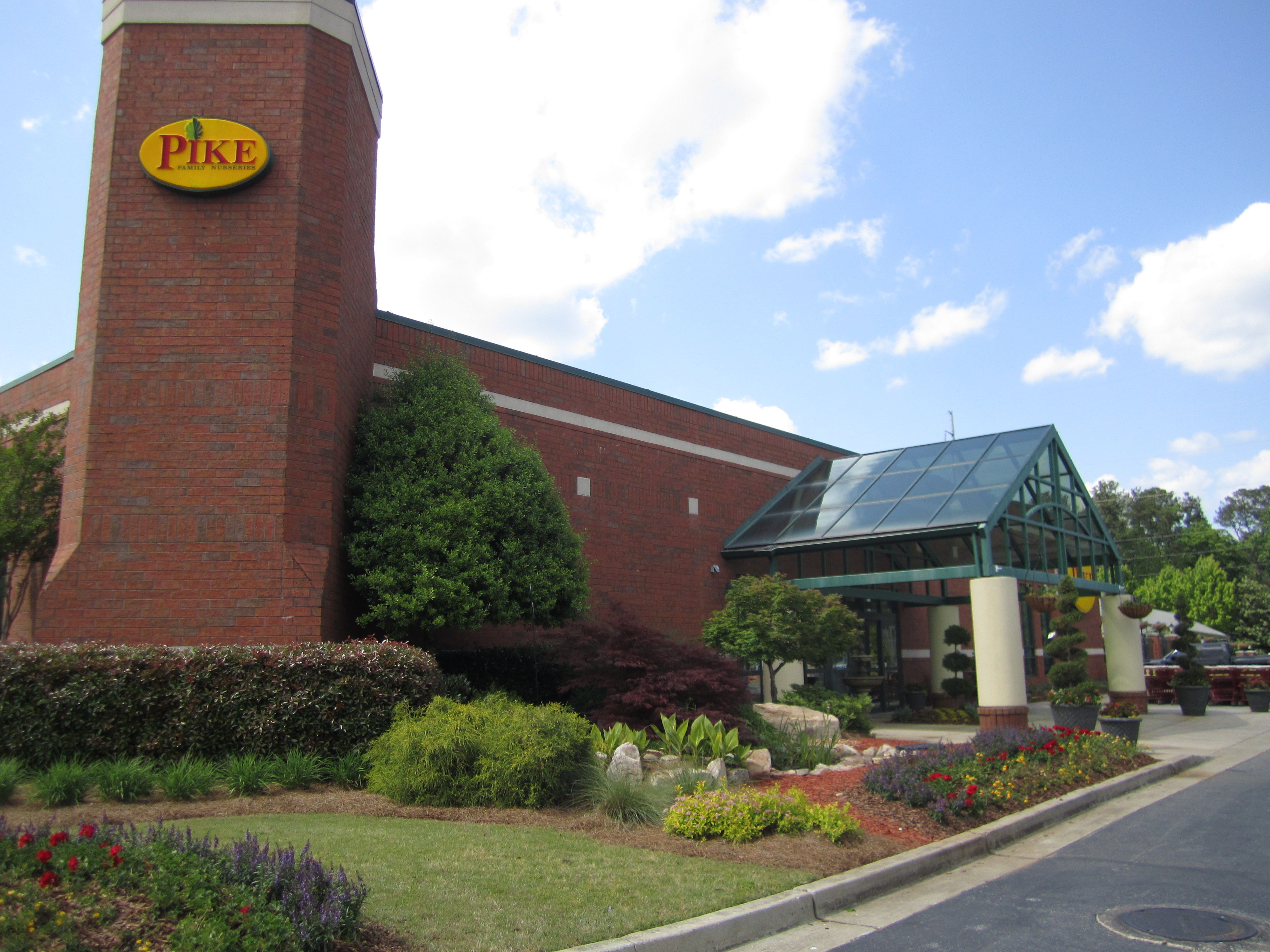Pike Nurseries garden professionals offer expert knowledge on fall lawn care
Neighborhood garden center shares tips and tricks for beautiful yards year round!

As the days grow shorter and the temperatures begin to drop, the fall season is the perfect time to prep the lawn for the coming colder months. The garden gurus at Pike Nurseries have the expert knowledge to keep any yard healthy and fresh year round. From adjusting the lawn mowing height to preventing weed growth, gardeners of all skill levels can learn tips and tricks to keep yards looking beautiful well into the spring!
Existing Lawn Care: Keep it Going and Growing
While temperatures begin to drop in late fall, continuing existing lawn care is essential to keeping yards healthy and vivacious throughout the winter months. Homeowners should water, edge and mow, as needed, paying special attention to time of day – mowing is best during the evening when the grass is dry and temperatures have cooled – as well as lower blade heights based on the different types of grass. For Fescue and St. Augustine, blades should be two to three inches, seeded Bermuda should be one to two inches, and sodded Bermuda and Zoysia should be a half inch to one and half inches. After the last cut of the season, clean the lawn mower and – if necessary – sharpen the blades prior to storing away for the winter.
Let Lawns Breathe
For lawns that have been heavily trampled over the summer months, aerating the soil will help roots grow deeper, provide nutrients and produce a stronger, more vigorous lawn. Over time, soil compaction occurs beneath the grass and prevents circulation of air, water and nutrients. After the aeration process is complete, it’s important to top dress the lawn with a thin layer of soil, compost or sand to improve these conditions and help avoid winter desiccation.
Fall Lawn Care Fertilization
While the seasons transition from warm to cool weather, fertilization is essential to keeping lawns thriving throughout the winter. Just as people need nutrients to prosper, so do yards. Different types of grass require specific fertilizers to keep them lush and healthy. Fescue, a cool season grass that grows mostly from early fall to June, should be fertilized every six weeks during its active period with Pike Lawn Fertilizer. Homeowners that have not yet fertilized their Fescue lawns this fall should start now and establish a schedule for the winter and spring. Bermuda, Zoysia, Centipede and St. Augustine are warm season grasses that should be fertilized every six weeks during their active period in spring, summer and early fall and not during late fall and winter.
Ward off Weeds with Pre-emergent
To keep poa annua (annual bluegrass), henbit, chickweed and other lawn weeds from becoming winter woes, apply pre-emergent Pike Crabgrass Preventer to varieties such as Bermuda, Zoysia and Fescue (only if there are no plans to sow seed). Applying pre-emergent to Fescue lawns that have been seeded will not only prevent weed seeds from germinating, but it will also prevent the grass seed itself from germinating.
Fescue to the Rescue
As with other plants, sowing Fescue seed in the fall allows the grass to root in, creates a denser lawn, helps prevent broadleaf weed growth and allows grass to become established before the stressful heat of summer returns. For first-time Fescue users, Pike Nurseries has the step-by-step instructions to take the guesswork out of the planting process. Before beginning, a seedbed must be established by rototilling the area to a depth of three to six inches. Where clay is in abundance, add one bag of Pike’s Planting Mix or Top Soil per 6-square-feet and then rake or drag the surface smooth. For areas that have not been limed in the past year, 40 pounds of lime should be added per 1,000-square-feet. After this is complete, apply Pike Starter Fertilizer, a premium, slow-release fertilizer using a broadcast spreader at the directed rate of the manufacturer.
Atlanta homeowners should use Atlanta Blend Fescue Seed, a grass seed blend of turf type fescues including Plantation, Virtue, Duster and Creeping Red, designed to meet the needs of the area’s lawns. Eight to 10 pounds of seed – or five to six pounds when seeding over existing grass – should be used per 1,000-square-feet and mulched with wheat straw to hold soil moisture and protect it from the birds. Once finished, follow normal lawn watering practices to ensure the soil does not become dehydrated during the germination period (about 10-14 days) or else the seed will not sprout and a good root system will not be developed.
Homeowners looking to completely revamp the yard have the option of laying Fescue sod versus spreading seed. Gardeners interested in this method should begin with a clean base – removing all weeds and debris, as well as treat the area with a weed killer such as KleenUp. After waiting at least a week for the product to settle, add two to three inches of top soil and till it. This will allow for better root development and drainage. Next, a starter fertilizer like Pike Lawn Starter should be applied to give the soil ample nutrients. To lay the sod, cut each to the size needed and lay one-by-one snug against each other on a straight edge. Once finished, use a water-filled roller to help level it and ensure there’s good contact between the sod and soil. For the first 14 days, sod should be watered thoroughly – if there is no rainfall – and also fed every six weeks with fertilizer.
For more fall lawn care tips and tricks from the garden experts at Pike Nurseries, visit one of the 17 store locations in Atlanta and Charlotte (the brand-new Matthews location is now open!) or online at bit.ly/PikeFallLawnCare.